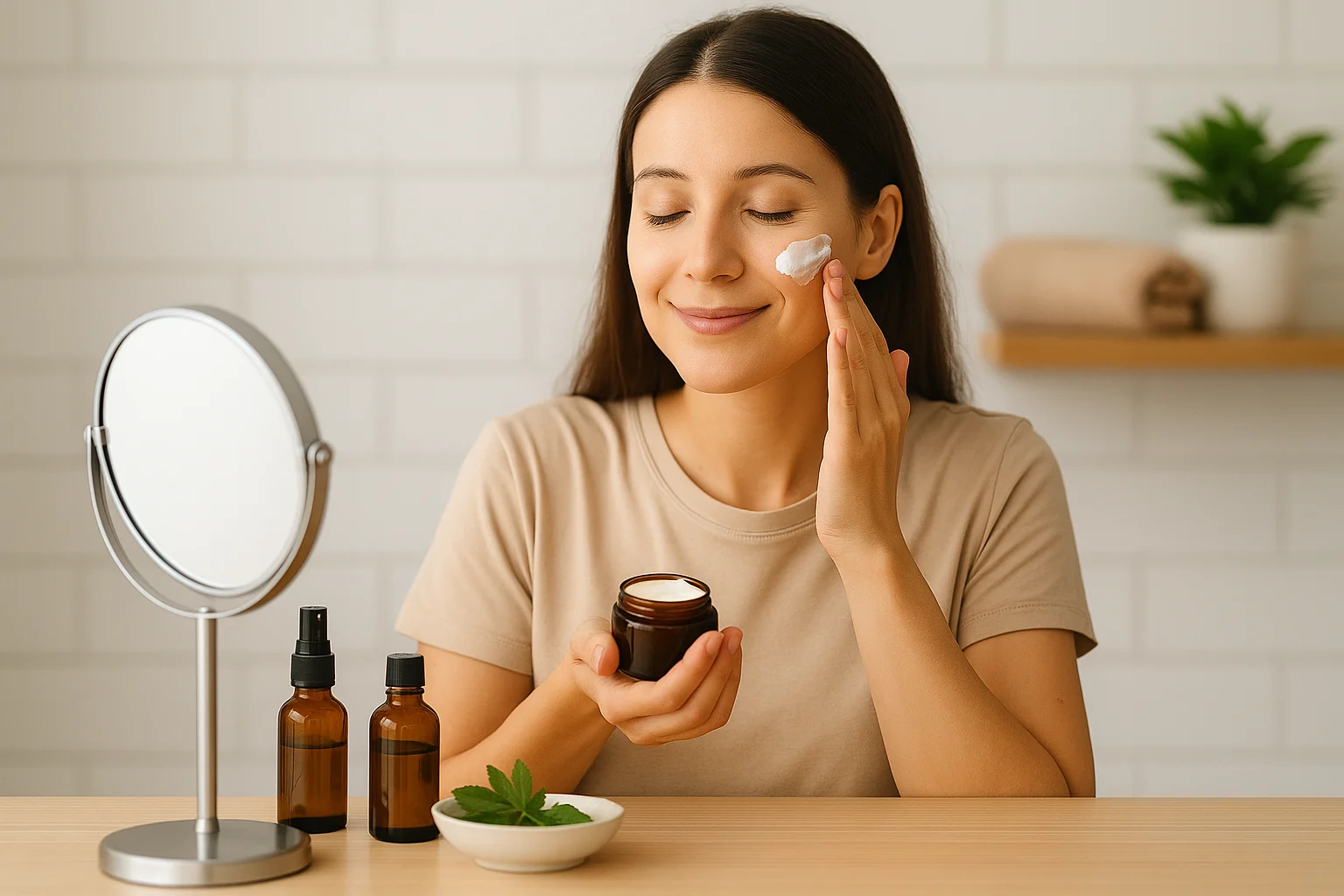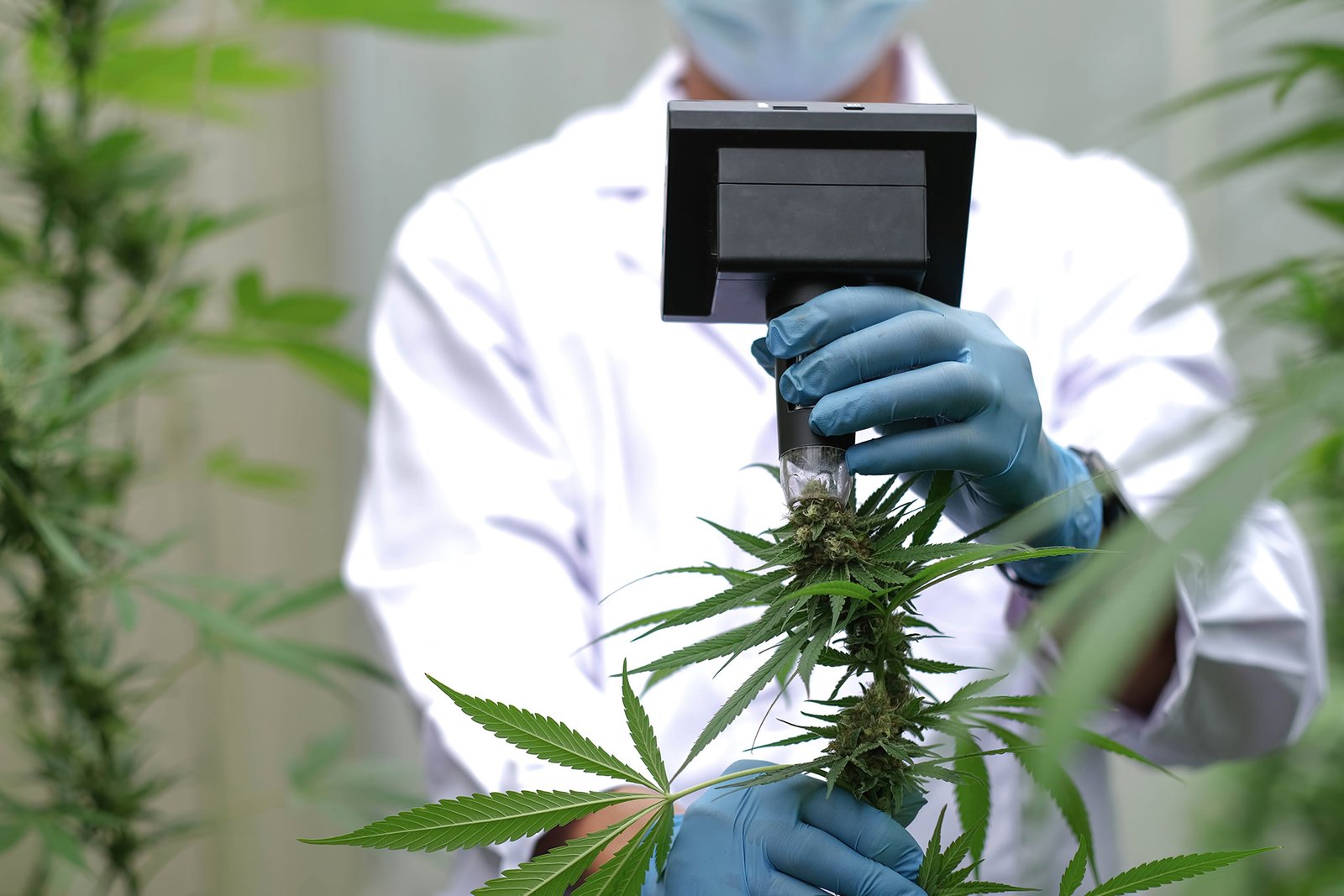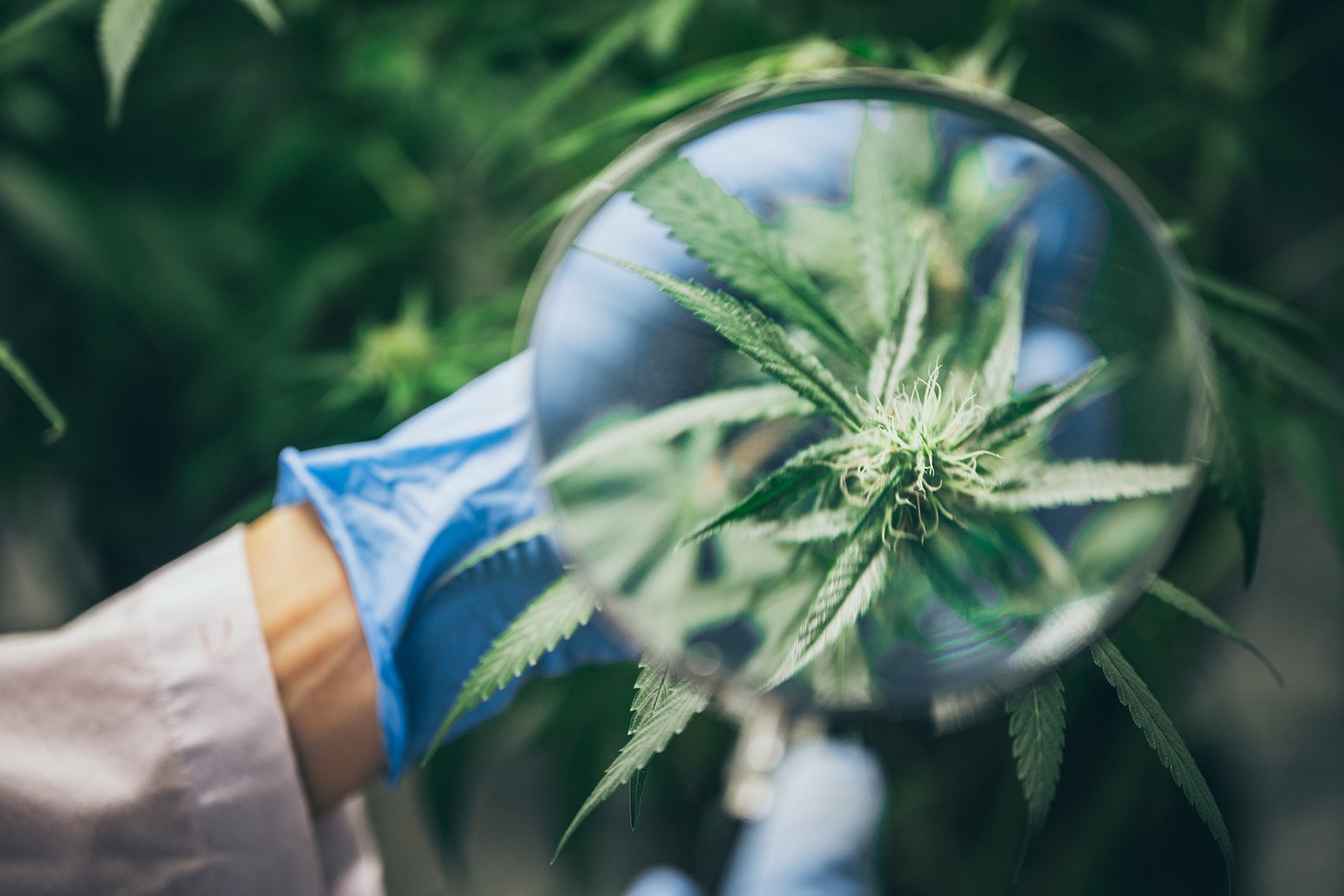
Why Herbal Skincare Is Gaining Popularity in the UK
- September 28, 2025
Why is herbal skincare becoming popular in the UK?
Herbal skincare is gaining popularity in the UK because consumers are moving toward clean beauty solutions that are safer, sustainable, and rooted in traditional plant-based healing. Demand is fueled by concerns over synthetic chemicals, social media awareness, and the proven benefits of herbs like calendula, chamomile, and turmeric.
The Shift Toward Natural Beauty in the UK
The UK skincare industry is worth over USD 4.14B in 2024, with natural and herbal skincare products experiencing faster growth than conventional beauty lines. Consumers are now more conscious about the impact of synthetic chemicals and are actively seeking gentler, plant-based alternatives. Herbal skincare products are no longer niche; they are part of mainstream beauty conversations and shopping habits across the UK.
Health and Safety Concerns Driving the Switch
One of the biggest factors pushing herbal skincare’s popularity is rising awareness about the risks of chemical-heavy products. Ingredients like parabens, sulfates, and artificial fragrances have been linked to irritation, allergies, and long-term skin issues. Herbs like calendula, chamomile, and aloe vera provide gentler options for sensitive skin while offering natural anti-inflammatory and soothing effects.
The Role of Transparency and Ingredient Stories
Modern consumers want to know exactly what goes into their skincare. Herbal products list botanical names such as Calendula officinalis or Glycyrrhiza glabra, which makes them appear authentic and trustworthy. Beyond labels, many brands are sharing the story behind their ingredients whether sourced from UK farms or prepared using traditional infusion methods. This level of transparency builds trust and loyalty in an increasingly competitive market.
Herbs That UK Consumers Trust for Skincare
Several herbs have become household names in British herbal skincare. These ingredients are not just trending but are supported by tradition and science.
Calendula (Calendula officinalis)
Known for its anti-inflammatory and wound-healing properties, calendula is one of the most common ingredients in herbal creams and oils for sensitive or irritated skin.
Chamomile (Matricaria recutita)
Chamomile is a classic herb for calming redness and soothing skin conditions like eczema. Its gentle effect makes it popular for children’s skincare as well.
Turmeric (Curcuma longa with black pepper)
Turmeric is celebrated for its antioxidant and anti-inflammatory benefits. It helps reduce pigmentation, supports even skin tone, and protects against environmental stressors.
Neem (Azadirachta indica)
Traditionally used for acne, neem has antibacterial and antifungal properties that make it a reliable herb for clearing blemishes and supporting skin balance.
Rose (Rosa damascena)
Rose water and rose oils are widely used in herbal skincare for hydration, toning, and their anti-aging effects. Their gentle scent also adds to their popularity.
Nettle (Urtica dioica)
Nettle is rich in minerals that nourish the skin barrier and support natural healing. It is often used in tonics and infused oils for vitality.
Licorice Root (Glycyrrhiza glabra)
Licorice root is a natural brightener, commonly used to reduce hyperpigmentation and uneven tone. Its active compounds protect the skin from oxidative damage.
Social Media & The Influence of Clean Beauty Trends
The rise of TikTok, Instagram, and YouTube has amplified the clean beauty movement. Viral videos showing turmeric face masks, rose water sprays, and DIY calendula balms have made herbal skincare more visible than ever. User queries on Reddit and Quora reflect this interest, with common questions like “Is neem safe for acne?” and “Can I use chamomile tea as a toner?” appearing frequently.
Sustainability and Ethical Beauty Choices
UK consumers are increasingly eco-conscious. They want skincare that not only helps their skin but also aligns with their values. Herbal skincare often comes with recyclable packaging, cruelty-free claims, and organic certifications. Ethical sourcing of herbs adds another layer of trust, especially when products are tied to British farms and sustainable practices.
The UK Context: Tradition Meets Modern Skincare
Herbal skincare is not new in the UK. British apothecaries and households have relied on herbs like chamomile, nettle, and rosemary for centuries. What’s changing now is how these traditions are validated by science and repackaged into modern, branded products. This blend of heritage and innovation makes herbal skincare especially appealing to today’s UK consumer.
Comparing Herbal vs Conventional Skincare
| Factor | Herbal Skincare | Conventional Skincare |
|---|---|---|
| Key Ingredients | Botanicals like calendula, turmeric, neem | Synthetic chemicals, parabens, silicones |
| Skin Sensitivity | Gentle, anti-inflammatory | Higher risk of irritation |
| Transparency | Botanical names, sourcing origins | Often hidden behind “fragrance” or lab terms |
| Sustainability | Eco-friendly, biodegradable | Plastic-heavy, petrochemical-based |
| Consumer Perception | Natural = safe, aligned with wellness | Chemical-heavy = risk, distrust |
Everyday Herbal Skincare Practices in the UK
- Chamomile and nettle teas are consumed internally to support skin health.
- Calendula-infused oils are used topically for soothing dry or inflamed skin.
- Rose water toners are part of daily routines for hydration and balance.
- Neem-based creams are applied to acne-prone areas for natural antibacterial action.
The Future of Herbal Skincare in the UK
Herbal skincare is more than a trend. It represents a cultural and scientific shift toward safe, transparent, and eco-friendly beauty. UK consumers are blending centuries-old herbal traditions with modern science, creating a skincare culture rooted in trust and sustainability. As demand grows, herbs like calendula, chamomile, turmeric, and rose will remain central to the UK’s clean beauty movement.
FAQs
Is herbal skincare better for sensitive skin?
Yes, herbs like calendula and chamomile are widely recommended for sensitive or irritated skin, providing natural anti-inflammatory effects.
Which herbs are best for acne-prone skin?
Neem, turmeric, and tea tree are popular choices for their antibacterial properties. Many users combine these with soothing herbs like licorice or rose.
Are herbal skincare products regulated in the UK?
Yes, they must comply with UK cosmetic regulations and safety testing, even if they are marketed as natural or organic.
Can I make herbal skincare remedies at home?
Yes, simple infusions and oils can be made using kitchen herbs, though professional formulations often provide stronger and safer results.
What is the most popular herbal skincare ingredient in the UK?
Calendula and rose are among the top herbal ingredients currently trending in the UK skincare market.
References
- Mintel – UK Natural and Organic Toiletries Market Report, 2024
- Research and Markets – UK Skincare Market Outlook, 2024–2029
- NHS – Complementary and Alternative Medicines Guidance, 2023
- Journal of Ethnopharmacology – Chamomile and Skin Conditions, 2022
- Phytotherapy Research – Turmeric in Dermatology, 2021
Recent Post

Medical Marijuana for Cancer
January 10, 2023

Medical Marijuana Needs to Be Legal
January 7, 2023

Is CBD Oil Safe to Use? Explaining
January 1, 2023
Contact Now
Explore our wide range of natural herbal products crafted for your wellness and everyday care.
Book An Appointment
Schedule a personalized consultation with Herbarium Choices to explore tailored herbal solutions for your health. Let us guide you toward a balanced and vibrant lifestyle.
